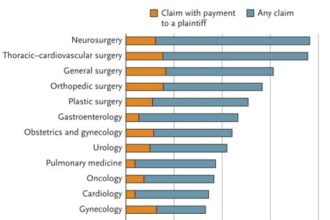“Hoaxing, forging, trimming, and cooking” is how a scientist referred to the problem of research misconduct in 1830. Today’s terminology may be less colorful—“falsification, fabrication, and plagiarism”—but the problem remains the same.
“Hoaxing, forging, trimming, and cooking” is how a scientist referred to the problem of research misconduct in 1830. Today’s terminology may be less colorful—“falsification, fabrication, and plagiarism”—but the problem remains the same.
The persistence of research misconduct should not come as a surprise. As long as “new knowledge” brings fame and fortune, “falsification, fabrication, and plagiarism” will be with us. That’s most unfortunate; such misinformation can carry a very high price in the subsequent waste of funds, time, and effort, and the practice of ineffective medical care. Fraudulent papers continue to be used as references long after they have been retracted.
It is estimated that approximately 1,000 cases of misconduct go unreported annually.
What can be done to reduce the prevalence of this persistent malignant problem?
In an effort to answer that question, I examined 146 Office of Research Integrity (ORI) reports on individuals found guilty of research misconduct over a ten-year period. The sample could be divided into three relatively same-sized groups based on role: students/fellows, faculty, and support staff .
The students and fellows were under great pressure to publish in order to enhance their chances for post- training employment. Faculty needed publications to support research grant applications, earn promotions, and gain prestige. Support staff were often unaware of the consequences of their actions or were careless, irresponsible, or tempted by financial rewards.
While each individual’s story was a mini-morality tale, I found six broad categories of common character traits and/or circumstances:
- The desperate, whose fear of failure overcame a personal code of conduct
- The perfectionist, for whom any failure was a catastrophe
- The ethically challenged, who succumbed to temptation
- The grandiose, who believed that his or her superior judgment did not require verification
- The sociopath, who was totally without conscience (and, fortunately, was rare).
In general, trainees who engage in misconduct are motivated by an inordinate fear of failure, and faculty by the conviction that they can avoid detection. Therefore, policies that diminish trainees’ fear of failure and increase the faculty’s fear of detection should be more successful.
The Office of Research Integrity has approached the problem by requiring that federally funded research training programs include a course in the Responsible Conduct of Research (RCR). It is not surprising that such courses have been found to be ineffective. It’s much too late in life to be teaching these young adults that it is wrong to lie, cheat, or steal (“fabricate, falsify, or plagiarize”).
I believe a more effective means of reducing trainee anxiety would be to enhance the quality of mentorship. One study found that among trainees guilty of misconduct, 62 percent of the mentors had not established procedural standards such as maintaining a laboratory notebook; 73 percent had not reviewed their trainees’ raw data. Only 23.5 percent of medical schools have published guidelines for mentors.
An effective mentor can establish ethical standards in the context of a good working relationship and provide emotional support when it is needed. A closer relationship would also provide an opportunity to maintain a watchful eye on the trainees’ conduct of their research. This can only be done with a reasonable ratio of trainees to mentor. That will not occur unless the quality of mentoring is considered in the evaluation of applications for federally funded research training programs.
How can the fear of detection be increased in potential faculty offenders? Increase the fear of the whistleblower! Unfortunately, for good reason, many potential whistleblowers remain silent for fear of retaliation. It has been reported that two-thirds of whistleblowers suffered adverse consequences as a result of their actions. This pattern will not change until each institution provides the whistleblower with truly effective protection as required by law. Why has that not been done ?
These are not brilliant insights or revolutionary remedies. I do not know if they have been given serious consideration in the past. If not, why not? We know that the scientific community initially resisted federal involvement in research misconduct. It argued that each institution could deal with the problem internally. However, with the emergence of a number of high-profile cases, Congress established the Office of Research Integrity.
Will history repeat itself? Will lab chiefs resist the requirement that a ratio of students to mentor be established? Twenty-five years ago, a senior figure in academic medicine expressed concern that “big science” had created programs in which trainees were inadequately supervised. Will the leaders of today’s even bigger science resist a requirement that might reduce the available supply of federally funded manpower?
I hope not.






